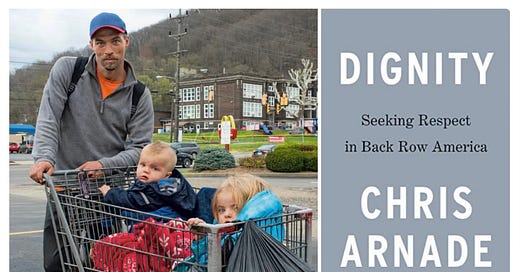In a previous episode on Care in the Reign of Scarcity, I (Acton) complained about the relational problems that the upwardly mobile, college-educated middle-class faces under the economic pressure to be successful: the push to leave your home town behind, go to college in another state, and from there to pursue one job after another, no matter where it takes you. There’s a “pack-up-and-haul-out” mentality that equates moving on with moving up in the world, and for good reason. The free circulation of labor that is the bedrock of capitalism certainly sounds good (everybody loves freedom), but if you’re going to succeed then you must circulate. You must wipe the dust of one place off your feet and find a better place, and such pressure doesn’t necessarily leave folks feeling “free” after all. This equation of opportunity with rootlessness takes a toll on the connections between extended family members, and on longterm relationships between friends and neighbors. This economic pressure is a huge component of the “scarcity of care” that so many of us feel, and that impacts things like the birth rate, and discussions over childcare and elder care.
But this pressure to leave home and find success elsewhere (usually a bigger city) doesn’t only damage the relationships of the ones who leave: it also damages the ones left behind. And that’s the story of your next homework assignment: Dignity: Seeking Respect in Back Row America by Chris Arnade. In this compassionate and revelatory work of photojournalism, Arnade tells the stories of dozens of people he’s met in America’s forgotten towns, from the Hunts Point neighborhood of the Bronx, to Gary, Indiana and Portsmouth, Ohio. Whether on a street corner, under a bridge, in a booth at McDonald’s, or in the pew of a tiny Pentecostal church, Arnade listens to what those in “back row America” — the poor, the drug-addicted, the marginalized, the stigmatized — have to say about their lives and homes.
The theme of de-industrialization looms large: factories which once provided good jobs and a living wage for those without college degrees disappeared, forcing people to choose between economically-driven escape, or loyalty to the place and people that they love (which comes with its own risks: joblessness, drug addiction, crime, violence, and prostitution). Arnade, who came from a small town in Florida but “escaped” into higher education (earning a PhD in Physics) and a career on Wall Street, is a “front row America” success story. But he comes with curiosity and openness to the back row, to consider those he left behind, what they value, and why they stayed. He considers the role of race and religion, as well as economic forces, that tug people one way or another.
I’m sure your library has a copy (it’s worth checking out for the photographs alone), but if you’re pressed for time, read these articles for an introduction: Our forgotten towns: struggle, resilience, love and respect in 'back-row America' (The Guardian) and Blessed Are The Stigmatized: A Review Of Chris Arnade’s Dignity (Institute for Family Studies). The book shows that the ones who were “left behind” and struggle with various forms of disorder and dysfunction still retain their dignity. It shows that maybe they weren’t “left behind” after all: maybe they chose to stay because they valued devotion to family and love of their home over individual “success.”
In the upcoming podcast episode, we’ll discuss our reactions to reading Dignity and what we think Arnade gets right, where we think he slips into liberal romanticizing of the back row, and ask the important question: what about everybody who is neither front row nor back row? What about everybody in between?





